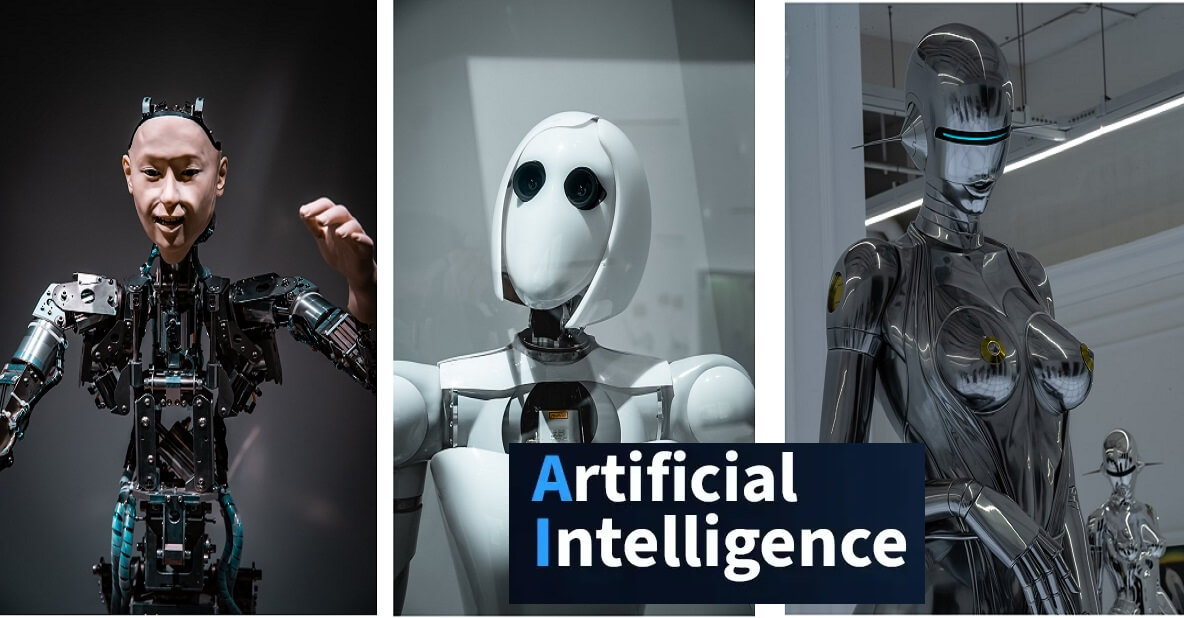
Importance of Artificial Intelligence (AI) in Education for All Students
Artificial Intelligence (AI) is revolutionizing education by providing personalized learning experiences, enhancing student engagement, and improving educational outcomes. This blog explores the importance of AI in education, its benefits for students, and the various AI applications transforming teaching and learning processes.
Introduction to AI in Education
Definition and Brief History of AI in Education
Artificial Intelligence (AI) refers to the simulation of human intelligence processes by machines, particularly computer systems. In the context of education, AI is used to create adaptive learning environments, automate administrative tasks, and provide intelligent tutoring systems. The concept of AI in education has been around since the early 1980s, but significant advancements have been made in recent years due to increased computational power and the proliferation of big data.
Overview of Current AI Technologies Used in Classrooms
Today, AI technology in classrooms includes AI-powered tutoring systems, automated grading tools, intelligent content creation, and predictive analytics for student performance. These technologies are designed to personalize learning experiences, making education more accessible and engaging for all students.
Benefits of AI for Students
Personalized Learning and Tailored Instruction
One of the most significant benefits of AI for students is personalized learning. AI systems can analyze a student’s learning style, strengths, and weaknesses to create customized learning paths. This tailored instruction ensures that students receive the support they need, enhancing their learning outcomes.
Improved Accessibility for Students with Disabilities
AI technology in classrooms can significantly improve accessibility for students with disabilities. For instance, speech recognition software can help students with dyslexia, while AI-driven tools can provide real-time transcription services for hearing-impaired students. These advancements ensure that all students have equal opportunities to learn.
Enhanced Student Engagement Through Interactive Tools
AI-powered tools, such as interactive learning platforms and gamified learning apps, make education more engaging for students. These tools use elements of game design and interactive media to motivate students, making learning a more enjoyable experience.
Efficient Administrative Tasks Allowing Teachers More Time to Focus on Students
AI can automate various administrative tasks, such as grading assignments and managing student records. This automation frees up teachers' time, allowing them to focus more on instruction and student support, ultimately improving the quality of education.
AI Applications in Education
AI-Powered Tutoring Systems
AI-powered tutoring systems, like chatbots and virtual tutors, provide students with instant feedback and support outside of regular classroom hours. These systems can help students understand complex concepts and provide personalized assistance tailored to their needs.
Automated Grading and Feedback
Automated grading tools use AI to assess student work and provide immediate feedback. This not only saves time for educators but also helps students quickly understand their mistakes and learn from them. It promotes continuous learning and improvement.
Intelligent Content Creation and Curation
AI can assist in creating and curating educational content. For example, AI algorithms can generate personalized study materials based on a student’s learning history and performance. This ensures that students have access to the most relevant and effective resources for their learning needs.
Predictive Analytics for Student Performance Tracking
Predictive analytics uses AI to analyze student data and predict future performance. Educators can use these insights to identify students who may need additional support and intervene early to prevent them from falling behind. This proactive approach can significantly enhance student outcomes.
Challenges and Considerations
Data Privacy and Security Concerns
The use of AI in education raises important data privacy and security concerns. Schools and educators must ensure that student data is protected and used responsibly. This includes implementing robust data security measures and being transparent about how data is collected and used.
The Digital Divide and Ensuring Equal Access
While AI has the potential to transform education, it is essential to address the digital divide to ensure equal access for all students. This includes providing necessary technology and internet access to underserved communities and ensuring that all students can benefit from AI-driven educational tools.
Teacher Training and Adapting to New Technologies
The successful implementation of AI in education requires proper training for teachers. Educators must be equipped with the skills and knowledge to effectively integrate AI tools into their teaching practices. Continuous professional development and support are crucial for adapting to these new technologies.
Future of AI in Education
Emerging Trends and Innovations
The future of AI in education looks promising, with several emerging trends and innovations on the horizon. These include the development of more advanced AI-powered learning systems, increased use of virtual and augmented reality in classrooms, and the integration of AI with other emerging technologies such as blockchain and the Internet of Things (IoT).
Long-Term Impact on Education Systems and Student Learning
In the long term, AI has the potential to fundamentally reshape education systems and improve student learning outcomes. By providing personalized and adaptive learning experiences, AI can help bridge the achievement gap, foster a love of learning, and prepare students for the challenges of the future workforce.
Conclusion
Artificial Intelligence is playing a crucial role in modern education, offering numerous benefits for students and transforming the way we teach and learn. From personalized learning and improved accessibility to enhanced engagement and efficient administrative tasks, AI is making education more effective and inclusive. As we look to the future, it is essential to address the challenges and considerations associated with AI implementation to ensure that all students can benefit from these advancements. By embracing AI and its potential, we can create a more dynamic, responsive, and impactful education system for generations to come.
Technology Artificial intelligence (AI)

